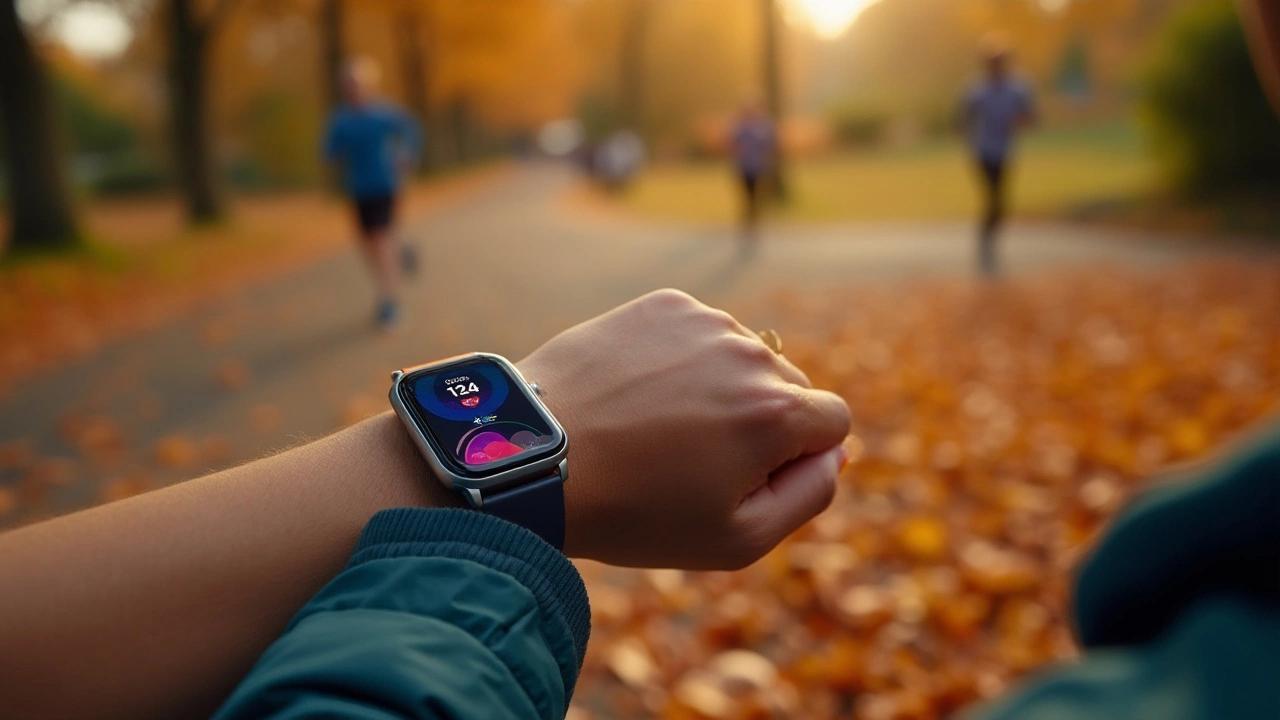Fitness Tracker Basics: What They Are and Why You Need One
If you’ve ever wondered whether a wrist‑worn gadget can really help you move more, you’re not alone. A fitness tracker is basically a tiny computer that measures steps, heart rate, sleep, and sometimes even stress. The data lands on your phone, giving you a clear picture of how active you are each day. Most people start with a step count, but the real power comes when you combine that with heart‑rate zones and sleep scores. Together they tell you where you’re winning and where you need a little push.
Picking the Right Tracker for Your Lifestyle
Don’t buy the most expensive model just because it looks cool. Think about what matters to you. If you love running, look for GPS accuracy and a strong battery that lasts at least a week. If you spend most of your day at a desk, a heart‑rate monitor and good sleep tracking are more useful. Brands differ on how easy they are to sync with other apps, so check the compatibility with the phone you already use. The article Are Fitness Trackers Worth It? Real Insights Before You Buy breaks down the pros and cons of popular models, helping you avoid the hype.
Another practical tip: read the warranty and see how easy it is to replace the band. A cheap band can ruin the experience if it breaks after a month. Look for models with interchangeable straps – that way you can swap a silicone band for a leather one without buying a whole new device.
Using Your Tracker to Actually Improve Your Fitness
Once you’ve got a tracker on your wrist, the real work starts. Set realistic daily step goals – 7,000 steps is a solid start for most people. If you’re already hitting that, bump it up by 500‑1,000 steps each week. Most trackers let you set reminders to stand up, which is a game‑changer if you have a desk job.
Heart‑rate zones are another gold mine. During a run, aim for a “fat‑burn” zone (about 60‑70 % of max heart rate) for longer sessions, and a higher “cardio” zone (70‑85 %) for interval work. Your tracker will buzz when you drift out of the zone, so you stay on target without constantly checking your phone.
If you love the convenience of answering calls on the go, models like the latest Fitbit support call handling. The piece Can You Answer Phone Calls on a Fitbit? Everything You Need to Know for 2025 explains which versions let you talk without pulling out your phone – perfect for quick check‑ins during a walk.
Don’t forget sleep. Good sleep scores correlate with better recovery and weight management. Aim for at least seven hours of consistent sleep, and use the tracker’s nightly insights to spot patterns – maybe you’re waking up too often because of caffeine late in the day.
Finally, review your weekly trends, not just daily numbers. Most apps show a graph of active minutes, calories burned, and even stress levels. Spotting a slump early lets you adjust your routine before it becomes a habit.
In short, a fitness tracker works best when you match its features to your goals, set simple targets, and use the data to tweak your day‑to‑day habits. With the right device and a bit of consistency, you’ll see real improvements in activity, sleep, and overall wellness.
Is Google Abandoning Fitbit? What’s Really Happening With Your Favorite Fitness Tracker
Maeve Larkspur May 29 0Rumors about Google leaving Fitbit users behind have left a lot of people feeling uneasy about their fitness routine. This article dives into what’s really happening, what changes are coming to Fitbit, and if you should start looking for alternatives. You’ll also find helpful tips on making the most of your current device and handling the new updates. Whether you love your Fitbit or you're just worried about your step count, this is everything you need to know.
More Detail
Is Fitbit Being Discontinued? Everything You Need to Know in 2025
Maeve Larkspur May 28 0Curious if Fitbit is being discontinued? This article breaks down what's happening with Fitbit devices in 2025, why people are worried, and what Google's role is. You'll find out which Fitbits are still supported, what to expect if you own one, and handy tips for choosing your next wearable. Stay informed before you decide to buy or upgrade.
More DetailCan I Track My Workout Without My Apple Watch? Simple Fitness Tracker Alternatives
Maeve Larkspur Apr 23 0This article explores how you can track your workouts without an Apple Watch, breaking down practical tools and apps you can use instead. It covers options using just your phone, ways to get accurate results, and looks into old-school pen-and-paper methods that surprisingly still work. Plus, you'll pick up some smart tips to stay motivated and organized. Whether you lost your Apple Watch or just never had one, you’ll find straightforward solutions to track your fitness progress.
More DetailWhat Watch Do Cardiologists Recommend for Fitness Tracking?
Maeve Larkspur Mar 11 0Choosing the right fitness tracker can make a big difference for heart health, and who better to offer advice than cardiologists themselves? Learn about the key features these health experts look for in wearable technology. Discover how the right fitness tracker can monitor heart rate, encourage physical activity, and even help predict heart-related issues. From basic heart rate monitoring to more advanced ECG features, find out which devices top cardiologists' lists.
More DetailIs Fitbit Losing Its Popularity? A Look into the Fitness Tracker Market
Maeve Larkspur Mar 4 0Fitbit once dominated the fitness tracker market, but is it still holding onto its crown? The wearable tech landscape is evolving fast with new competitors, and consumer preferences are shifting. Explore why Fitbit's popularity might be waning and what this means for the future of fitness gadgets. Discover how features, brand loyalty, and innovations play into this changing dynamic.
More Detail
Exploring the Potential Side Effects of Wearing Smartwatches
Maeve Larkspur Jan 26 0In recent years, smartwatches have gained popularity as essential fitness tools, offering numerous health-tracking features. However, concerns about potential side effects have emerged. This article delves into the possible health implications of wearing smartwatches. It explores topics such as radiation exposure, skin irritation, and psychological effects, as well as providing tips for safe usage.
More Detail